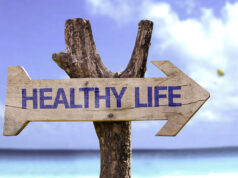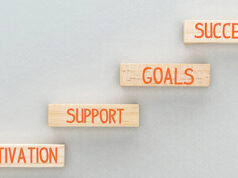 If you take a cross-section of a Modern Orthodox yeshivah in Brooklyn, you’ll find a wide range of students: tall, short, big, small, athletic and musical. But there are some students you will not find. Children with Down Syndrome and other developmental disorders beyond the age of six are, surprisingly, not accommodated by any of these yeshivahs in the Midwood/Flatbush area. As a result, these children cannot study Hebrew and Torah with their friends and siblings.
If you take a cross-section of a Modern Orthodox yeshivah in Brooklyn, you’ll find a wide range of students: tall, short, big, small, athletic and musical. But there are some students you will not find. Children with Down Syndrome and other developmental disorders beyond the age of six are, surprisingly, not accommodated by any of these yeshivahs in the Midwood/Flatbush area. As a result, these children cannot study Hebrew and Torah with their friends and siblings.
In the year 2004, I found out I was pregnant with a daughter with Down Syndrome, which is one of the most common birth defects, occurring in all races, ethnic groups and nationalities. One in 700-800 babies in North America will be born with this disorder. Babies with Downs Syndrome have one extra chromosome in each of his millions of cells, so they have 47 chromosomes instead of 46. This extra chromosome will affect the child’s life: it causes a difference in appearance and unique medical problems, and will most likely cause some degree of mental retardation, the range of which varies between mild, moderate and severe.
When I went to school to become an ultrasound technologist, I learned with each pregnancy that I had to solve a mystery with every bit of information I was given. Every test result was a clue to finding out how each baby was going to come into the world. That is why I had every test possible to prepare for the birth of Emily Sofia. Every time I experienced an ultrasound exam, I was able to bond with my baby. This bond left me fearless, even as one test after another indicated that my baby had Down Syndrome. When I saw her inside moving around, seeing her features, I realized she did not look any different from the ultrasounds I had with my other three daughters.
During my pregnancy, my husband and I researched Down Syndrome on our computer to prepare us for Emily’s birth. During this time, I also became aware of early intervention, which consists of physical, occupational and speech therapies including special education, all done in the home of the child, one-on-one.
In my seventh month, the high risk OB-GYN doctor performed my monthly sonogram and informed my husband and me that an obstruction developed within the baby’s stomach. When the doctor told us she would need surgery two days after she would be born, we were devastated. After a couple of days, I told my husband that we were lucky. He did not understand why I would say this. I told him we were lucky because we could prepare for the surgery, physically and mentally, two months before our baby arrived. We had the option of which doctor and hospital we wanted—an opportunity most parents do not have.
After about 38 weeks of pregnancy and early labor pains prior, on September 12, 2004, Emily Sofia (Elky Zece) was born in North Shore hospital. My intuition told me I needed a C-section and sure enough, she was born with the cord wrapped around her little neck. Had we waited any longer, she would have lost a vast amount of oxygen. However, thank G-d that was not the case. She was born seven pounds, eight ounces—a nice size for a baby whose stomach had been obstructed for at least two months. After two days, she was transferred to Schneider’s Children Hospital and had a three-hour-long surgery. Thereafter, she remained in the N.I.C.U. (Neonatal Intensive Care Unit) for three weeks. Since Emily was born in the middle of Rosh Hashanah and Yom Kippur, Chabad accommodated my husband and me, allowing us to stay in the apartments located close to the hospital. This allowed us to be with Emily. Miraculously, she came through recovery with amazing strength! Two weeks after surgery, she lifted her head while lying on her stomach. The physical therapist told us typical children cannot even achieve this. Her reflexes were strong. She had three holes in her heart, two of which closed completely, and one of which remained slightly open, which does not require a follow-up. Things were looking up, and I was looking forward to bringing Emily home, even though she had a feeding tube, which scared me. She needed a feeding tube due to the low muscle tone around her mouth. The nurses comforted me and showed me how to manipulate the tube.
Finally, the day came when my husband and I were able to bring Emily home to her sisters. I was so optimistic with Emily’s progress. Then a doctor came over to my mother and me, and told us, “These children with Down Syndrome do not have much hope when it comes to learning in school.” He said I should “focus on music, because this is what they are talented in. Do not pressure her into academics; it’s a waste of time.” He pretty much gave me a grim future for Emily. However, after doing my own research, I begged to differ!
After being home for two days, Emily was sucking from a bottle so nicely, and didn’t need her feeding tube any longer. Emily is now almost four years old, and with the help of early intervention and continuing therapy (including yoga therapy), she is developing nicely. She is pretty much doing what a typical child would be doing at her age. There are some areas she is behind in, but that’s okay.
The only issue that I am concerned and shocked about, is that there are no Modern Orthodox yeshivahs in the Midwood/Flatbush area in Brooklyn that will accommodate Emily and children with other disabilities after the age of six years and older. I keep asking myself why there isn’t the same opportunity for Emily to learn Hebrew like her sisters do in a yeshivah. That is why a concerned friend, Estelle Peretz and I started to raise funds to start a program in an existing yeshivah which will give these children a chance. If anyone would like to join us, we need help making this dream a reality. Don’t we owe it to these children to help them achieve their highest potential and have a bright future, like their friends and siblings have? Please call us to keep this mission going strong: Bonnie Siegel at (347) 374-3858 or Estelle Peretz at (917) 865-5443. Thank you.
_____________
Bonnie Siege is happily married with four daughters. She is an elementary school teacher. She and her family reside in Brooklyn.



